Latest News
US envoy meets Indian NSA to talk about Afghanistan
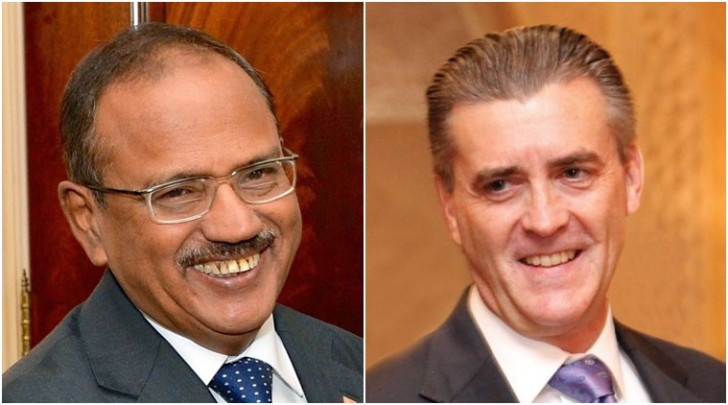
The United States’ Special Representative for Afghanistan, Richard Olson, met with Indian National Security Advisor Ajit Doval, ahead of a key meeting scheduled for next week of the four-nation group seeking to bring about an end to conflict between Afghanistan and the Taliban, Indian government sources said.
An Indian government official familiar with the talks said their discussion centred on evolving a regional strategy to back the 170,000-strong Afghan army, which suffered a record 5,500 dead and 14,000 injured last year.
Next week’s meeting of the so-called quadrilateral, made up of Afghanistan, Pakistan, China and the United States, comes among growing pessimism that Islamabad will deliver on long-standing promises to bring the Taliban to the negotiating table — the keystone of the international community’s efforts to end the conflict.
Faced with Taliban rejection of negotiations, and an offensive that has claimed swathes of territory, Afghanistan has been calling on regional states, including India, to step up supplies of military aid. India has so far supplied four Mi35 assault helicopters, as well as three light helicopters, but Afghanistan hopes for An32 medium-transports, as well as artillery and logistics equipment.
“The casualties the Afghan military has suffered are staggering”, said Lieutenant-General RK Sawhney, an analyst at the New Delhi-based Vivekananda International Foundation. “By way of comparison, it is as if a corps and a half in Jammu and Kashmir, out of the three corps India has there, had suffered these kinds of losses”.
“It is remarkable that the Afghan army has continued to fight”, General Sawhney said, “but it will need long-term assistance from neighbours like India, who will also suffer serious consequences if the country collapses”.
The United States military presence in Afghanistan is scheduled to fall from 9,800 at present to 5,500 by the start of 2017 — further eroding the training of troops, and the ability to provide them with logistical assistance.
In the months after he took power, President Ashraf Ghani had staked his political legitimacy on promises by Pakistan to push the Taliban into talks, but hopes have waned with the Islamist insurgency repeatedly rejecting calls to come to the table. However, hopes have waned that Islamabad is committed to a power-sharing deal involving the Taliban, as the insurgent group has registered its most significant territorial gains since 2001.
“Everyone agrees that a political settlement will at the end of the day be necessary to bring about an end to the Afghan conflict”, a senior United States official said. “However, there isn’t much reason for an over-abundance of optimism that this will happen”.
Last month, hopes rose after Pakistani Prime Minister Nawaz Sharif’s Foreign Policy Advisor, Sartaj Aziz, broke with decades of denial that the Taliban leadership was in the country, and said the government had “restricted their movements, restricted their access to hospitals and other facilities, and threatened them that ‘If you don’t come forward and talk, we will at least expel you’”.
The Taliban had been told, he said, that “we have hosted [them] enough for 35 years, and we can’t do it anymore because the whole world is blaming us just by [their] presence here”.
In the days after that declaration, though, a hoped-for meeting between the Taliban and Afghan officials failed to materialise, with the insurgents rejecting any direct dialogue until multiple preconditions were met.
Taliban chief Aktar Muhammad Mansoor, who operates out of the Pakistani city of Quetta, has in the meanwhile consolidated his authority, bringing on board the eldest son and a brother of Mullah Muhammad Omar, the group’s founding leader. Mullah Omar was revealed, last year, to have died over two years ago — sparking large-scale rifts within the insurgent leadership.
Mullah Abdul Manan Akhund, a brother of Mullah Omar, was named head of the Taliban’s Preaching and Guidance Commission, while Mullah Mohammad Yaqoub, his eldest son, was named military chief for operations in 15 provinces.
“Both of the new officials of Islamic Emirate were given advise [sic] by the Amir ul Mumineen [the Commander of the Faithful, the title for Mullah Mansour] who later prayed to Allah Almighty for their success in their current duties,” a Taliban statement said.
The Indian Express

Latest News
IEA rejects Russia’s claims of foreign militants in Afghanistan
He further called on Russian authorities to reassess their understanding of the situation in Afghanistan and to update their reports based on objective facts on the ground.
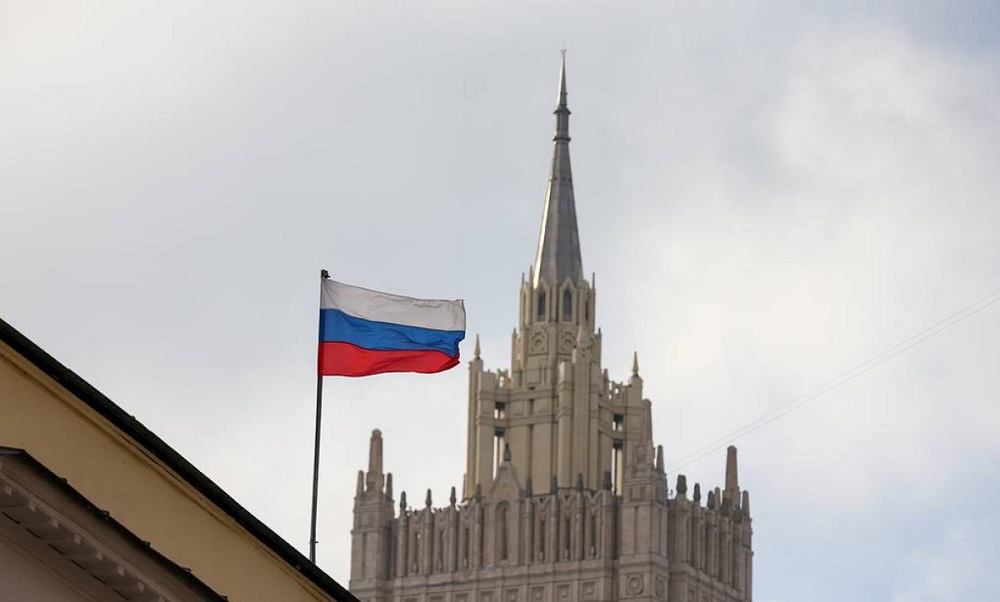
The Islamic Emirate of Afghanistan (IEA) has strongly rejected recent claims by Russia regarding the presence of international terrorist groups inside Afghanistan, calling the allegations unfounded and based on inaccurate information.
Speaking on the issue, Zabihullah Mujahid, the spokesperson of the Islamic Emirate, said Afghanistan is fully secure and no foreign armed groups are operating within the country.
He stressed that the entire territory of Afghanistan is under a single authority, leaving no space for external groups to carry out activities.
“We regret that such claims are made from sources in Russia,” Mujahid said, adding that these allegations date back to the past, including the period of the U.S. occupation, and have no basis in current realities. “We categorically reject these assertions.”
He further called on Russian authorities to reassess their understanding of the situation in Afghanistan and to update their reports based on objective facts on the ground.
Latest News
Escalating violence in Pashtun regions during Ramadan raises concerns
He described these incidents as grave violations of international law and acts that have deepened fears among affected communities.

Amid the holy month of Ramadan, violence has continued in several Pashtun areas, raising serious concerns among local communities.
In a post in X, Manzoor Ahmad Pashteen, the founder and head of Pashtun Tahafuz Movement, noted that in Tirah, four Pashtun civilians were reportedly killed and six others injured during operations carried out by the Pakistani army. Protests that followed in Orakzai were also met with force, leaving four more individuals seeking peace and justice injured.
In Afghanistan’s Behsud district, 17 civilians, including women and children, were reportedly killed in airstrikes attributed to Pakistani forces, he stated.
He described these incidents as grave violations of international law and acts that have deepened fears among affected communities.
In recent days, additional casualties have been reported in Rozmak, Shawal (North Waziristan), Mubarak Shahi village (Mir Ali), Speen Wam, Abakhel village, Dosali, Takhte Khel (Lakki Marwat), Azam Warsak (South Waziristan), Bajaur, and Bannu, where clashes between security forces and armed groups have resulted in deaths and injuries among civilians, Pashteen said.
He stated that the ongoing violence reflects longstanding grievances in Pashtun regions. The Pashtun Tahafuz Movement (PTM) has stated that it will continue to oppose what it describes as injustices against Pashtun communities and will stand in solidarity with those affected.
Latest News
UNAMA reports civilian casualties from Pakistani airstrikes in Afghanistan
UNAMA urged all parties to end hostilities, protect civilians, and uphold international law principles of distinction, proportionality, and precaution to prevent further civilian harm.
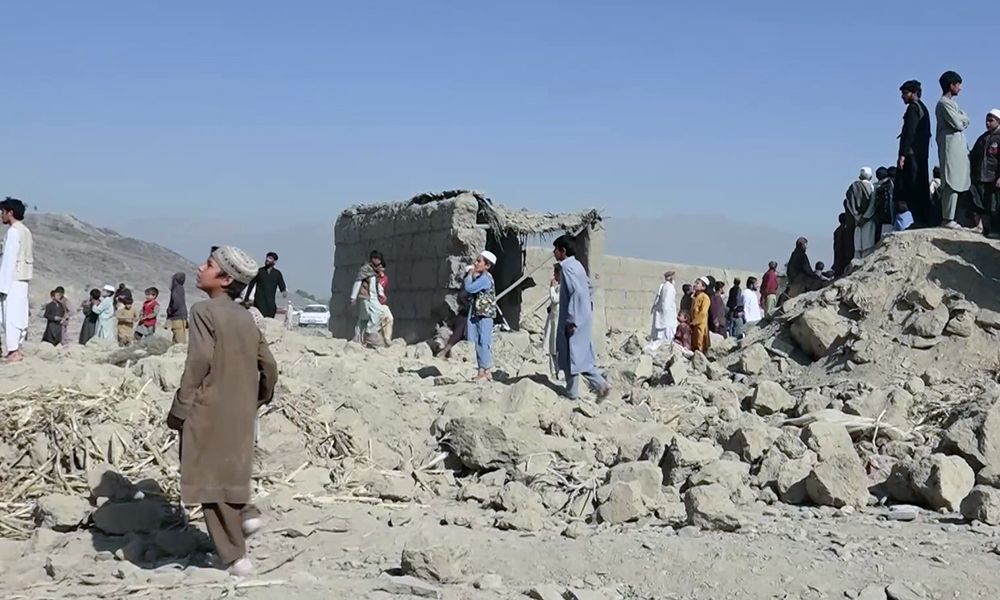
The United Nations Assistance Mission in Afghanistan (UNAMA) has confirmed credible reports of civilian casualties following overnight Pakistani airstrikes inside Afghanistan on 21–22 February.
Airstrikes in Behsud and Khogyani districts of Nangarhar province, carried out between approximately 23:45 on 21 February and 00:15 on 22 February, have reportedly killed at least 13 civilians and injured seven others, including women and children.
Pakistani forces also struck Barmal and Urgun districts in Paktika province.
In Barmal’s Marghai area, an airstrike on 21 February around 23:15 hit a madrassa and partially damaged a nearby mosque.
In Urgun’s Dahna area, an airstrike at approximately 23:30 partially destroyed a vacant private residence. No civilian casualties have been reported from these strikes.
UNAMA urged all parties to end hostilities, protect civilians, and uphold international law principles of distinction, proportionality, and precaution to prevent further civilian harm.
-
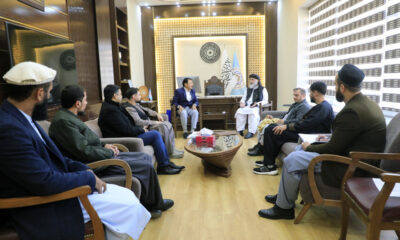
 Latest News4 days ago
Latest News4 days agoAfghanistan welcomes investment and technology partnerships with India
-

 Sport4 days ago
Sport4 days agoAfghan Peaks founder climbs Aconcagua to promote Afghanistan’s mountain potential
-

 Latest News3 days ago
Latest News3 days agoIndian customs seize Chinese walnuts falsely declared as Afghan
-

 Business4 days ago
Business4 days agoPakistan allows re-export of stranded Afghan transit cargo
-
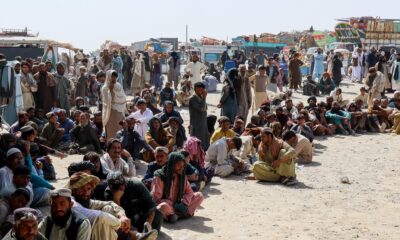
 Latest News3 days ago
Latest News3 days agoPakistan’s Punjab to send home 20 more Afghans in repatriation drive
-

 Latest News4 days ago
Latest News4 days agoPakistan signals possible air strikes as Kabul releases Pakistani soldiers in goodwill move
-

 Latest News2 days ago
Latest News2 days agoMoldova bans Afghan airlines over safety concerns
-
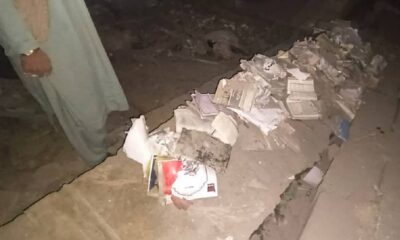
 Latest News2 days ago
Latest News2 days agoAfghanistan vows retaliation after Pakistan launches air strikes














